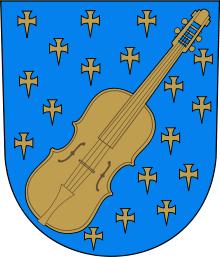Konsta Jylhä

In Finnish fiddling, Konsta Viljam Jylhä (14 August 1910 Kaustinen – 13 September 1984) was a folk-virtuoso who made the traditional pelimanni-style folk music a Finnish cultural phenomenon of wider currency, bringing his natural genius and traditional style to a burgeoning nationwide television audience, thus laying the foundation for a rich and popular traditional music scene in Finland.
A third generation Central Ostrobothnian master pelimanni (Mestaripelimanni); in the 1960s Konstas band Konsta Jylhä ja Purpuripelimannit became a mainstay of the Kaustinen Folk Music Festival, and iconic both in popular culture, and within the generation of master pelimanni to follow in his footsteps.
His best known pieces of original composition are Konstan Parempi Valssi ("Konstas Major Waltz") and especially the hauntingly beautiful Vaiennut Viulu ("Mute Violin").
After being battered by a severe head injury suffered in a logging accident in 1961 and some heart attacks suffered since 1962, he finally started to think about his relationship with God. After having read the American healing evangelist Kathryn Kuhlman's famous book, God Can Do It Again, and after attending a local Bible group, he became a born-again Christian, that is, committed his life to Jesus Christ, in or around 1974. During the last ten years of his life, he composed over forty Christian songs whose melodies often corresponded with his earlier folk music melodies. Their words were written by the local Bible group. Some of these Christian songs became popular in Finland among Christians of several denominations and evangelical movements (see Paavo Helistö, "The Story of Konsta Jylhä, a Fiddler and Folk Composer" / Konsta Jylhän pelimannin ja kansansäveltäjän tarina, published in Finland in 1997).
External links
|